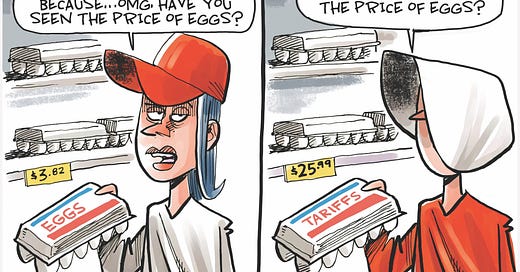Simple Math: Costly Policies
Mathematics advances from the very simple to realms of mysterious erudition with formulas and equations written using symbols that most of us cannot enunciate, much less understand.
The most famous equation in modern science is E = mc2. E stands for Energy. M and C represent mass [in kilograms] and the speed of light, respectively – and are evidently reduced to lower case status in modern computations. The speed of light is squared [multiplied times itself].
Pretty familiar. But the answer for the amount of energy generated by the transference is measured in joules. A joule is the work done by a force of one newton acting through one meter. A newton represents the force needed to propel one kilogram of mass at the rate of one meter per second squared. A joule can equally be denoted as 107 ergs, or approximately 0.7377 foot-pounds. One erg is equivalent to 10−7 joules.
OK. There are people in the world who know more than we do. Not necessarily smarter. Definitely more knowledgeable.
There is a reason publishers encourage science writers aiming for the general public to limit the use of equations.
Not paying attention as a college freshman, I actually ended up with a three-hour elective in math. About 20 years later, I discovered that I could no longer work quadratic equations. [Nor did I have a need to.]
Luckily, the four basic functions – addition, subtraction, division and multiplication [a shorthand for addition] – satisfy most of our needs.
The first two take care of personal finances. Baby Boomers for Trump can figure how much to subtract from their monthly financial picture when Republicans make good their promise to kill Social Security. How much more they will have to add to the cost of medical services with the abolition of Medicare will depend upon their illnesses and insurance. Addition and subtraction. Simple math.
Everybody will see the increase in just about everything we buy. Trump’s promised high tariffs will be paid by domestic businesses who import the goods. Those businesses, in turn, will pass that cost on to us – likely with a little of their standardized greed-inflation added on for good measure.
As of September, the U.S. had a trade deficit of $84.359 billion. That shows our reliance on imports for consumer goods. With incoming goods costing more, that deficit will increase – as American bank accounts shrink to pay for a bad policy.
The purpose of tariffs is to protect local competitors. Beginning with Ronald Reagan – whom the Japanese rewarded for his efforts – Republicans have implemented plans to shift most U.S. industry overseas. Trump’s tariffs have nothing left to protect. Oh, but he sounds tough.
Last week, Democratic Pennsylvania Rep. Brendan Boyle put the simple math into simple English: "Make no mistake: Trump's tariffs are taxes by another name – and it is hard-working American families who will pay the price."
The proposed mass deportation of undocumented immigrants will crash the construction, landscaping and many other service industries. Fewer workers will equal fewer jobbers. The greater demand will make those still working more valuable – costlier.
Then, too, that undocumented workforce has been essential for decades in the harvesting of fruits and vegetables. Food will rot on the vines, creating another shortage which will raise prices and leave more people hungry.
New Mexico Sen. Martin Heinrich, another Democrat, said last week that "Trump and Republicans have led Americans to believe that their policies will lower costs, but make no mistake: imposing new tariffs, mass deportations, and politicizing the Federal Reserve will lead to skyrocketing prices. And that's only a sample of the inflationary policies Republicans have laid out in their Project 2025 playbook."
"I am deeply concerned that Trump's plans will force Americans to pay higher prices for everything from clothing to groceries," Boyle said. "American families cannot afford more Republican 'trickle-down' economics that throws the middle class under the bus while slashing taxes for billion-dollar corporations."
Heinrich concurred: "Democrats have built a strong economy with smart policies that empower workers, grow the middle class, and lower costs for families. Meanwhile, Trump's policies will only help his CEO friends and ultimately lead to a weaker economy."
Simple math: bad economic policies.






